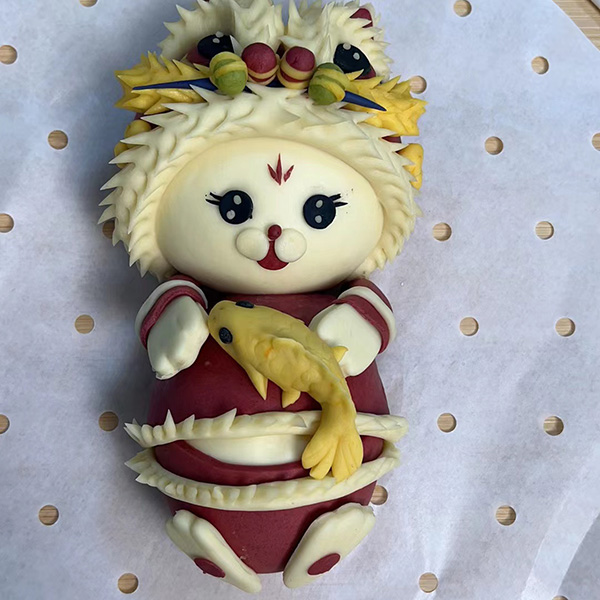

"I have made a point of developing new designs from time to time," she says.
As her skills increased, sales in her brick-and-mortar shops and online orders have both been on the rise, including those from the 50,000 fans on her social media accounts, such as Douyin. The brisk sales have seen her open a second shop in downtown Yantai in October and hire eight employees.
"We have received about 30 to 40 orders a day; each order is for buns of about two to three kilograms and is worth around 300 yuan," Zang says.
Her products have also made their way to customers from the major cities, including Beijing, Shanghai and Zhejiang province's capital Hangzhou.
Ever since she became an online phenomenon, Zang has also been confronted with accusations that it's a waste of her college education to make buns.
She thinks there's no hierarchy in careers.
"As long as I get to do what I want and make something of it, it will be worth it," she says.
She also believes that young people should think outside the box and try more things, like traditional crafts, which "need young people to carry forward".
Zang has held training sessions at her shops and shot a video for those who live far away.
"Many have shown great interest in picking up huabobo skills, especially women who have just become mothers," she says, adding that she is glad that more young people have engaged in the traditional craft.
"Some of them have already opened their own shops."
As her popularity grows, Zang says she feels more pressure.
"It has prompted me to make huabobo more exquisite," she says.
Speaking about her plans, Zang says she wants to apply her financial background to her business venture.
She would like to standardize production and form a complete supply chain for huabobo.
"Now that my grandmother is gone, I want to make this passion my career and keep on doing it," Zang says. "I also love traditional Chinese culture and believe that the craft of making huabobo is worth promoting."